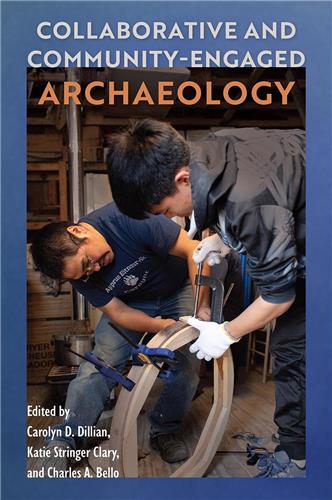Exploring archaeological sites and materials that uncover the history of Massachusetts, this book chronicles the diverse story of the state from the seventeenth century to the present.
Browse by Subject: Anthropology
Please note that while you may order forthcoming books at any time, they will not be available for shipment until shortly before publication date
This book highlights approaches to archaeological research that emphasize active involvement of local communities and descendant groups in the design, investigation, interpretation, and management of sites and heritage. It provides real-world examples that demonstrate the broad applicability and benefits of collaborative work.
Focusing on small-scale societies in saltwater environments, this volume explores the development of seafaring technology and examines how watercraft have served as groundbreaking innovations throughout human history.
The two volumes of Bioarchaeology of the Southwest bring together more than 100 years of research into the lives of the ancient people of the Southwest United States and Northwest Mexico. Volume 2 contains chapters that include northern and southern Arizona, southwest New Mexico, and northern Mexico.
The two volumes of Bioarchaeology of the Southwest bring together more than 100 years of research into the lives of the ancient people of the Southwest United States and Northwest Mexico. Volume 1 contains chapters that range from Colorado to central New Mexico and the Lower Pecos region of Texas.
Examining the religious lives of Santería practitioners in Santiago de Cuba, this book explores how practitioners of different backgrounds create and maintain religious communities.
This book considers the vast collection of skulls amassed by Samuel Morton in the first half of the nineteenth century, using a biohistoric approach to take a close look at the times in which Morton lived, his work, and its complicated legacy.
This volume explores the impacts humans have made on island and coastal ecosystems and the ways these environments have adapted to anthropogenic changes over the course of millennia.
Based on extensive fieldwork among espiritistas and their patrons in Havana, this book makes the surprising claim that Spiritist practices are fundamentally a project of developing the self.
This book tells the story of how Lacandón Maya families have adapted to the contemporary world while applying their ancestral knowledge to create an ecologically sustainable future in Mexico’s largest remaining tropical rainforest.











